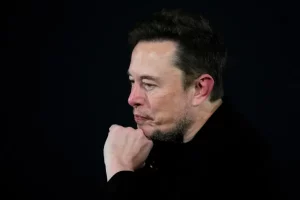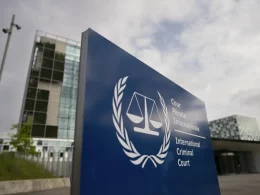In a surprising turn of events, Elon Musk, the CEO of Tesla and SpaceX, has decided to drop his lawsuit against OpenAI and its CEO, Sam Altman. This development has sparked significant interest and speculation across the tech industry and beyond. The lawsuit, which had been a topic of heated discussion, revolved around issues of intellectual property, competition, and the future direction of artificial intelligence (AI).
Background of the Lawsuit

The lawsuit filed by Musk against OpenAI and Altman was rooted in concerns over competitive practices and intellectual property. Musk, a co-founder of OpenAI, had distanced himself from the organization, citing differences in vision and approach towards AI development. He was particularly vocal about his concerns regarding AI safety and transparency, and his departure from OpenAI was seen as a manifestation of these differences.
Musk’s lawsuit alleged that OpenAI, under Altman’s leadership, had deviated from its original mission of developing AI for the benefit of humanity. He claimed that the organization had engaged in practices that were not only detrimental to the industry but also potentially harmful to society at large. The lawsuit also touched upon issues of intellectual property, with Musk asserting that OpenAI had used proprietary information and technologies developed during his tenure without proper authorization.
Reasons Behind Dropping the Lawsuit
The decision to drop the lawsuit has been attributed to several factors. Firstly, it appears that a series of discussions and negotiations between Musk and Altman have led to a resolution of the core issues that prompted the legal action. Both parties have reportedly reached an agreement that addresses Musk’s concerns about AI safety and transparency.
Secondly, the decision is also seen as a strategic move by Musk. Engaging in a prolonged legal battle with OpenAI, an organization he helped establish, could have had negative repercussions for his other ventures, particularly Tesla and SpaceX. By dropping the lawsuit, Musk avoids potential distractions and reputational damage that could arise from a public legal conflict.
Implications for OpenAI
For OpenAI, the dropping of the lawsuit comes as a significant relief. The organization can now continue its work without the looming threat of legal action. This development also allows OpenAI to refocus its efforts on advancing AI technology and addressing the challenges associated with it. Furthermore, the resolution of the dispute with Musk may enhance OpenAI’s credibility and reputation within the tech community.
The agreement reached with Musk is likely to include measures that ensure greater transparency and accountability in OpenAI’s operations. This could involve more rigorous oversight of its projects and a commitment to sharing information about its AI developments with the broader public. Such steps would align with OpenAI’s mission and address some of the criticisms that have been leveled against it.
Impact on the AI Industry
The resolution of the legal dispute between Musk and OpenAI has broader implications for the AI industry. It highlights the importance of collaboration and dialogue in addressing the complex and often contentious issues surrounding AI development. The AI industry, which is characterized by rapid innovation and significant competition, can benefit from a more cooperative approach that balances the interests of various stakeholders.
The dropping of the lawsuit also underscores the need for clear guidelines and ethical standards in AI development. As AI technologies become increasingly integrated into various aspects of society, ensuring their safe and responsible use is paramount. The agreement between Musk and OpenAI may serve as a model for how conflicts in the AI space can be resolved through constructive engagement rather than adversarial legal battles.
Future Prospects for AI Collaboration
With the lawsuit behind them, both Musk and OpenAI can potentially explore new avenues for collaboration. Despite their differences, both parties share a common interest in advancing AI technology for the benefit of humanity. Collaborative efforts between leading figures in the AI field, such as Musk and Altman, can accelerate progress and help address the ethical and technical challenges associated with AI.
One possible area of collaboration could be in the development of AI safety protocols and frameworks. Musk has been a vocal advocate for ensuring that AI technologies are developed and deployed in a manner that prioritizes safety and minimizes risks. OpenAI, with its extensive expertise and resources, could play a key role in advancing this agenda.
Analysis Table: Key Factors in Dropping the Lawsuit
| Factor | Description | Impact |
|---|---|---|
| Resolution of Core Issues | Discussions led to an agreement addressing Musk’s concerns about AI safety and transparency | Positive, as it resolves the fundamental disagreements and fosters mutual understanding |
| Strategic Considerations for Musk | Avoiding a prolonged legal battle that could affect Tesla and SpaceX | Positive, minimizing potential distractions and reputational damage |
| OpenAI’s Continued Operations | Freedom from legal threat allows OpenAI to focus on its mission | Positive, enabling OpenAI to advance AI technology without legal distractions |
| Transparency and Accountability | Likely agreement on measures to ensure greater transparency in OpenAI’s operations | Positive, aligning with public and industry expectations for ethical AI development |
| Industry Collaboration | Potential for renewed collaboration between Musk and OpenAI | Positive, promoting a cooperative approach in the AI industry |
Comparative Table: Before and After Dropping the Lawsuit
| Aspect | Before Dropping the Lawsuit | After Dropping the Lawsuit |
|---|---|---|
| Legal Status | Active lawsuit with potential for prolonged litigation | Lawsuit dropped, legal conflict resolved |
| Organizational Focus | OpenAI distracted by legal issues | OpenAI refocused on advancing AI technology |
| Industry Perception | Concerns about internal conflicts and ethical practices | Improved credibility and reputation for OpenAI |
| AI Safety and Transparency | Debates and criticisms regarding OpenAI’s practices | Agreed measures for greater transparency and accountability |
| Potential Collaborations | Limited due to ongoing legal conflict | Renewed possibilities for collaboration in AI development |
Conclusion
Elon Musk’s decision to drop his lawsuit against OpenAI and Sam Altman marks a significant milestone in the ongoing discourse surrounding AI development. By resolving their differences through negotiation rather than litigation, both parties have set a positive precedent for the industry. This development not only allows OpenAI to continue its mission without the distraction of legal issues but also opens the door for potential future collaborations that could drive forward the responsible and innovative development of AI technologies.
The implications of this resolution extend beyond the immediate parties involved, offering valuable lessons for the broader tech industry. It highlights the importance of addressing ethical and safety concerns in AI development, the benefits of transparency and accountability, and the potential for collaborative approaches to overcome challenges. As AI continues to evolve and play an increasingly integral role in society, such developments will be crucial in ensuring that its benefits are maximized while its risks are effectively managed.











